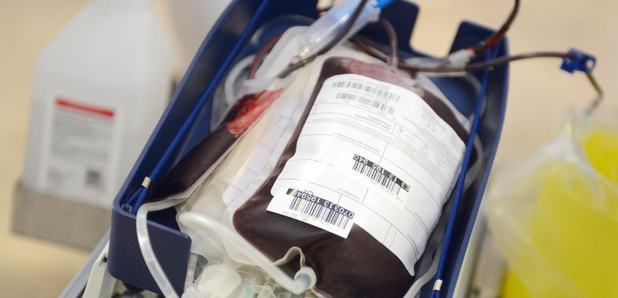Hospital records of patient with hepatitis 'lost or destroyed', inquiry hears
10 July 2019, 15:41 | Updated: 10 July 2019, 15:42

"Lost or destroyed" hospital records of a patient believed to have been infected with hepatitis C during an operation prevented him from receiving compensation, an inquiry has heard.
A groin injury, suffered while working as a logger in south-west Scotland, required surgery, during which the patient - known as Mr X - said he was given a blood transfusion.
Speaking under the condition of anonymity, the patient told the Infected Blood Inquiry that nurses joked with him after his operation in 1976 that he would be speaking with an American accent because the blood used for his transfusion came from America.
After being diagnosed with hepatitis C - which he said could only have come from that operation - he attempted to get his medical records from the Dumfries and Galloway Royal Infirmary, which, he said, told him could not find his details.
Despite support from a GP who backed up Mr X's assertion that the infection must have come from a contaminated blood transfusion, his repeated attempts to get compensation from the Skipton Fund were rejected.
The fund, set up in the wake of the contaminated blood scandal, is supposed to provide non-discretionary, ex-gratia payments to those infected with hepatitis by NHS blood.
Mr X said that "the absence of medical records, where they are lost or destroyed", along with a signed confirmation from a doctor that the infection was likely caused by medical procedures should automatically trigger the payment.
However, in practice, Mr X said: "It turns out that the Skipton Fund was a very discretionary fund, so it failed in its protocols, it failed in its set-up procedures and processes and failed miserably at being a non-discretionary fund."
He also said that he found "glaring" inaccuracies in his GP records that left him "flummoxed completely", such as getting the number of children he has wrong, claiming his landlady was his partner and indicating he had taken drugs intravenously. He said these are false claims which he has had to fight to get corrected.
"I embarked on a personal crusade to right what I felt was wrongs," he said, adding: "It was a dog's breakfast in terms of factual accuracy."
After three spells of treatment - one of which Mr X described as "like being napalmed from the inside out" - he was cured of the virus, although he was left with numerous health conditions including liver cirrhosis, heart problems and an enlarged spleen.
Concluding his evidence, Mr X called for treatment to "break the cycle" of hepatitis infection and said: "We have to look at serious elimination strategy of hepatitis C.
"It's within our grasp to do that - the Scottish Government in 2015 committed themselves to an elimination strategy and that seems to have lost its way."
He added: "We have the expertise, we have the knowledge and we have the cure to actually eliminate hepatitis C from our midsts."
Suggesting treating it the same "collective, immediate and sustained" way as foot and mouth was dealt with, he quipped: "I'm not saying we all get put on a big funeral pyre and burned, but we have got the ability to eliminate hepatitis C from our society."
The inquiry also heard from the widow of a man who said his hepatitis C diagnosis and two failed spells of treatments caused him to spiral into alcoholism and his death at 45.
She described meeting "the love of my life" at the age of 14, marrying at 17, and going on to have two children together.
Her late husband had mild haemophilia - a condition impairing a person's ability to form blood clots - and so occasionally needed treatment involving receiving transfusions.
She said that in 1995, the couple were ushered into a storeroom "the size of a tuppence" following what they thought was a routine blood test, to be told he had hepatitis C.
It later emerged that his hospital records from Glasgow's Yorkhill site were also lost or destroyed.
Mrs Y also tearfully told the inquiry how her husband "became a different man" after his second attempt at treatment to cure the virus, and told his family that he did not want to burden them any more. He left their family home - which they lost due to debt - and became an alcoholic. She said this led to his death aged 45.
Following the evidence, inquiry chairman Sir Brian Langstaff said she had given "a powerful account of the destructive effects" hepatitis C and its treatment had physically, socially and financially on her family.






















